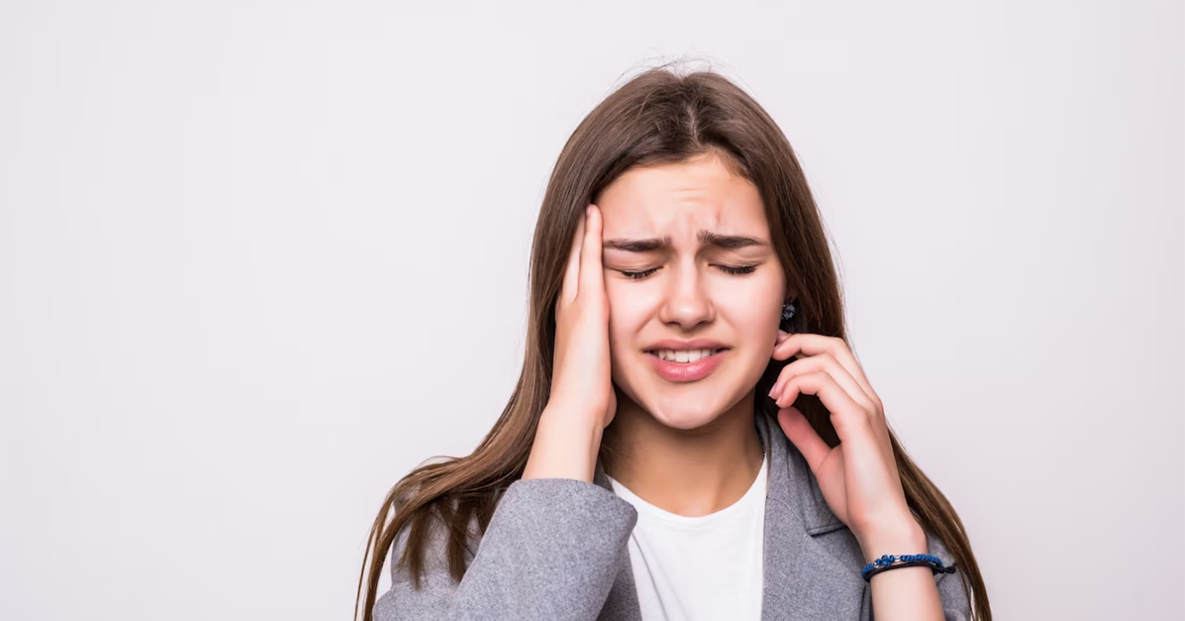
Tinnitusis the sensation of sound perceived by the patient which originate within himself. It is heard in either one or both ears. These are described as roaring, whistling, buzzing, steaming or like clicks etc. They may be intermittent or permanent. Hearing words, songs or voices is not included in the definition of tinnitus.
For many it is very disturbing depending on the intensity and some people fear that they may be developing a brain tumour.
Some people may people notice that the intensity of the noises vary during various activities like, exercise, drinking coffee or other stimulants like alcohol etc.
Children can also suffer from tinnitus as which can be frightening for them.
Tinnitus is generally classified into two types:
This type of tinnitus is not very common. Noises may be caused by spasm of small muscles in the middle ear like tensor tympani and stapedius or palatal muscles. These are often heard as a clicking sound. A continous noise can be due to abnormalities of the blood vessels around the ear.
It is the turbulent bloodflow that is heard directly by the inner ear, and it usually occurs in time with the heart beat (pulsatile tinnitus). Pulsatile tinnitus can occur when there is an increased bloodflow to the ear, such as during an infection and inflammation, but also because of anatomical abnormalities of the blood vessels.
Vascular tumours of the middle ear are rare, and can giverise to a pulsatile tinnitus. Such objective tinnitus which can be heard by the examining doctor may require further investigation by an ear, nose and throat surgeon or Neurotologist, and may in some instances require a surgical treatment.
The tube connecting the ear to the nose(Eustachian tube) may be patulous and cause objective tinnitus.
This is the commonest type of tinnitus. Many a times tinnitus can be associated with hearing loss. Damage of the cells of organ of corti due to certain drugs, exposure to loud noise over a period of time and old age deafness can all cause tinnitus due toabnormal electrical activity in these damaged cells.
The loudness of tinnitus is not linked to the degree of hearing loss or duration of disease. Most of the people suffering from tinnitus are able to ignore the symptom and only a few will perceive it a significant disturbance.
Certain types of diseases that affect the inner ear can also be associated with tinnitus (eg Menière’s disease). It can also be a symptom of tumors affecting the hearing nerve (eg acoustic neuroma) or central connections of the brain (eg brain tumours).
If tinnitus is unilateral or causing great distress, further investigations are required and generally carried out by an ear nose and throat surgeon or Neurotologist.
Investigations usually include hearing tests, and can also involve blood tests and radiological investigations (x-rays or scans). Not everyone with tinnitus will need every investigation. Sometimes no definite cause for the tinnitus is found. On other occasions a readily identifiable cause will be found such as a hearing loss.
If a specific cause for the tinnitus like a nerve tumour or brain tumour are found, they will require specific treatment but the majority of patients may benefit from other types of medical treatment.
Fortunately, the majority of patients who suffer from tinnitus will either find it gets better by itself, or that they will learn to tolerate the noises after a short period of time of only a few weeks or months.
Treatment is often a difficult problem. Even treatment of the original disease sometimes fail to remove the noise. Reassurance(Tinnitus counseling) is essential and understanding of the disconcerting nature of the noise often allays the symptom. Recently there have been significant development in the understanding and effective management of tinnitus. Some patients can be cured and some can be helped. Tinnitus as clinical problem has two aspects. 1) The mechanism which generates tinnitus. 2) The mechanism by which the faint sensation is magnified and rendered persistent by higher centre.
This is a procedure of encouraging the patient to share his ideas and fears about tinnitus and explaining how tinnitus is produced to build up confidence.
Help is given to combat the most debilitating mental effects of such noises. Simultaneous treatment of depression, anxiety and insomnia is of paramount importance. Treatment of emotional disturbance by use of relaxation technique is useful. Use of hearing aids and tinnitus maskers give comfort to the patient and often masks the tinnitus
The use of hearing aids or tinnitus maskers amplify surrounding noises so that the tinnitus is no longer heard. Hearing aids are ideal if there is an associated hearing loss with the tinnitus. Tinnitus maskers are not so commonly used any more, but worked on the idea that a continuous noise, generated in the ear canal by the masker, would mask the tinnitus and would also provide an effect for several hours after it had been switched off.
Ultrasonic therapy, hypnosis and acupuncture can occasionally help. In general, drug treatments are not very helpful but recently high doses of betahistine is proving to be beneficial. Some types of sedatives have been used, but they are not good for long-term use and do not solve the problem.
Copyright @ 2023 | All Rights Reserved by : DAS ENT Care